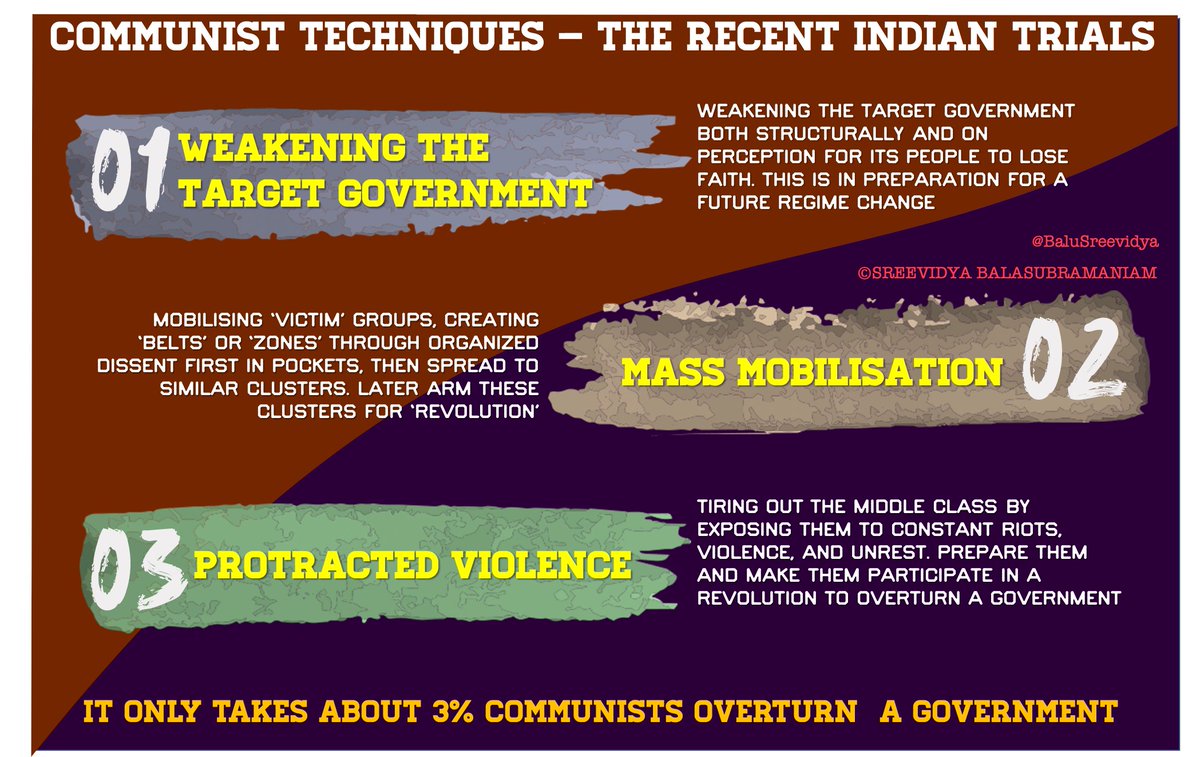For the Prime Minister of Australia:
Dear Scott Morrison,
I am writing to you because I am concerned about Australia’s refugee policy and human rights record. 1/20
More from World
Good question: what proofs has BDA provided of his authenticity?
Let's go through some of them.
- BDA predicted the Saudis would assassinate Suleimani. They did.
- He said the dog that got Badghadi's arm deserved a Medal Of Honor. The next day the President posted a joke image showing him giving the dog a MoH.
- He said one of his ops in Syria would severely disrupt a CIA drug trafficking operation. This was proved true within a few days:
https://t.co/Hranupwcxj
- He sent gold to Brazil to help pay for an anti-trafficking operation there. That op became public soon afterwards.
- On May 31 this year, he predicted the President would be giving a speech the next day. June 1, the President gives a surprise address at the Rose Garden.
- He predicted the US would be making diplomatic moves on Greenland. True.
- He said the US would be pulling all troops out of Afghanistan. This was confirmed within the month.
- He claimed earthquakes would be hitting Iran's nuclear facilities in December. Yep.
- There were FOUR facilities hit, not the three made public. Also true.
Let's go through some of them.
Do you really believe this? And you believe BDA is a time traveler too? You say BDA has accurately predicted things. Please point me to the proof. I have not seen any proof so far.
— I am Justice. God's Kingdom is coming. Wake up. (@GlynAlyn) October 13, 2020
- BDA predicted the Saudis would assassinate Suleimani. They did.
- He said the dog that got Badghadi's arm deserved a Medal Of Honor. The next day the President posted a joke image showing him giving the dog a MoH.
- He said one of his ops in Syria would severely disrupt a CIA drug trafficking operation. This was proved true within a few days:
https://t.co/Hranupwcxj
- He sent gold to Brazil to help pay for an anti-trafficking operation there. That op became public soon afterwards.
- On May 31 this year, he predicted the President would be giving a speech the next day. June 1, the President gives a surprise address at the Rose Garden.
- He predicted the US would be making diplomatic moves on Greenland. True.
- He said the US would be pulling all troops out of Afghanistan. This was confirmed within the month.
- He claimed earthquakes would be hitting Iran's nuclear facilities in December. Yep.
- There were FOUR facilities hit, not the three made public. Also true.
In 2016,Turkey arrested Abdulkadir Yapcan, a prominent Uighur political activist living in the country since 2001 and initiated his extradition. In 2017, Turkey and China signed an agreement allowing extradition even if the purported offense is only illegal in 1of the 2️⃣countries
Since early 2019, Turkey has arrested hundreds of Uighurs and sent them to deportation centers. And Erdogan’s remarks have turned diplomatically bland, just like any Uighur-related coverage in newspapers controlled by Erdogan and his supporters.
Erdogan Is Turning Turkey Into a Chinese Client State\U0001f914https://t.co/WZyETQ9mkB
— James Mitchell \u24cb\U0001f42c (@MesMitch) February 13, 2021
Since early 2019, Turkey has arrested hundreds of Uighurs and sent them to deportation centers. And Erdogan’s remarks have turned diplomatically bland, just like any Uighur-related coverage in newspapers controlled by Erdogan and his supporters.
You May Also Like
#ஆதித்தியஹ்ருதயம் ஸ்தோத்திரம்
இது சூரிய குலத்தில் உதித்த இராமபிரானுக்கு தமிழ் முனிவர் அகத்தியர் உபதேசித்ததாக வால்மீகி இராமாயணத்தில் வருகிறது. ஆதித்ய ஹ்ருதயத்தைத் தினமும் ஓதினால் பெரும் பயன் பெறலாம் என மகான்களும் ஞானிகளும் காலம் காலமாகக் கூறி வருகின்றனர். ராம-ராவண யுத்தத்தை

தேவர்களுடன் சேர்ந்து பார்க்க வந்திருந்த அகத்தியர், அப்போது போரினால் களைத்து, கவலையுடன் காணப்பட்ட ராமபிரானை அணுகி, மனிதர்களிலேயே சிறந்தவனான ராமா போரில் எந்த மந்திரத்தைப் பாராயணம் செய்தால் எல்லா பகைவர்களையும் வெல்ல முடியுமோ அந்த ரகசிய மந்திரத்தை, வேதத்தில் சொல்லப்பட்டுள்ளதை உனக்கு
நான் உபதேசிக்கிறேன், கேள் என்று கூறி உபதேசித்தார். முதல் இரு சுலோகங்கள் சூழ்நிலையை விவரிக்கின்றன. மூன்றாவது சுலோகம் அகத்தியர் இராமபிரானை விளித்துக் கூறுவதாக அமைந்திருக்கிறது. நான்காவது சுலோகம் முதல் முப்பதாம் சுலோகம் வரை ஆதித்ய ஹ்ருதயம் என்னும் நூல். முப்பத்தி ஒன்றாம் சுலோகம்
இந்தத் துதியால் மகிழ்ந்த சூரியன் இராமனை வாழ்த்துவதைக் கூறுவதாக அமைந்திருக்கிறது.
ஐந்தாவது ஸ்லோகம்:
ஸர்வ மங்கள் மாங்கல்யம் ஸர்வ பாப ப்ரநாசனம்
சிந்தா சோக ப்ரசமனம் ஆயுர் வர்த்தனம் உத்தமம்
பொருள்: இந்த அதித்ய ஹ்ருதயம் என்ற துதி மங்களங்களில் சிறந்தது, பாவங்களையும் கவலைகளையும்

குழப்பங்களையும் நீக்குவது, வாழ்நாளை நீட்டிப்பது, மிகவும் சிறந்தது. இதயத்தில் வசிக்கும் பகவானுடைய அனுக்ரகத்தை அளிப்பதாகும்.
முழு ஸ்லோக லிங்க் பொருளுடன் இங்கே உள்ளது https://t.co/Q3qm1TfPmk
சூரியன் உலக இயக்கத்திற்கு மிக முக்கியமானவர். சூரிய சக்தியால்தான் ஜீவராசிகள், பயிர்கள்
இது சூரிய குலத்தில் உதித்த இராமபிரானுக்கு தமிழ் முனிவர் அகத்தியர் உபதேசித்ததாக வால்மீகி இராமாயணத்தில் வருகிறது. ஆதித்ய ஹ்ருதயத்தைத் தினமும் ஓதினால் பெரும் பயன் பெறலாம் என மகான்களும் ஞானிகளும் காலம் காலமாகக் கூறி வருகின்றனர். ராம-ராவண யுத்தத்தை

தேவர்களுடன் சேர்ந்து பார்க்க வந்திருந்த அகத்தியர், அப்போது போரினால் களைத்து, கவலையுடன் காணப்பட்ட ராமபிரானை அணுகி, மனிதர்களிலேயே சிறந்தவனான ராமா போரில் எந்த மந்திரத்தைப் பாராயணம் செய்தால் எல்லா பகைவர்களையும் வெல்ல முடியுமோ அந்த ரகசிய மந்திரத்தை, வேதத்தில் சொல்லப்பட்டுள்ளதை உனக்கு
நான் உபதேசிக்கிறேன், கேள் என்று கூறி உபதேசித்தார். முதல் இரு சுலோகங்கள் சூழ்நிலையை விவரிக்கின்றன. மூன்றாவது சுலோகம் அகத்தியர் இராமபிரானை விளித்துக் கூறுவதாக அமைந்திருக்கிறது. நான்காவது சுலோகம் முதல் முப்பதாம் சுலோகம் வரை ஆதித்ய ஹ்ருதயம் என்னும் நூல். முப்பத்தி ஒன்றாம் சுலோகம்
இந்தத் துதியால் மகிழ்ந்த சூரியன் இராமனை வாழ்த்துவதைக் கூறுவதாக அமைந்திருக்கிறது.
ஐந்தாவது ஸ்லோகம்:
ஸர்வ மங்கள் மாங்கல்யம் ஸர்வ பாப ப்ரநாசனம்
சிந்தா சோக ப்ரசமனம் ஆயுர் வர்த்தனம் உத்தமம்
பொருள்: இந்த அதித்ய ஹ்ருதயம் என்ற துதி மங்களங்களில் சிறந்தது, பாவங்களையும் கவலைகளையும்

குழப்பங்களையும் நீக்குவது, வாழ்நாளை நீட்டிப்பது, மிகவும் சிறந்தது. இதயத்தில் வசிக்கும் பகவானுடைய அனுக்ரகத்தை அளிப்பதாகும்.
முழு ஸ்லோக லிங்க் பொருளுடன் இங்கே உள்ளது https://t.co/Q3qm1TfPmk
சூரியன் உலக இயக்கத்திற்கு மிக முக்கியமானவர். சூரிய சக்தியால்தான் ஜீவராசிகள், பயிர்கள்






















